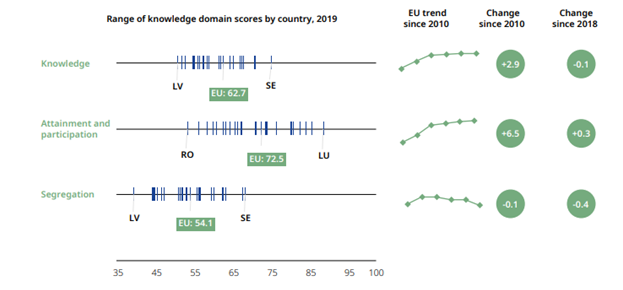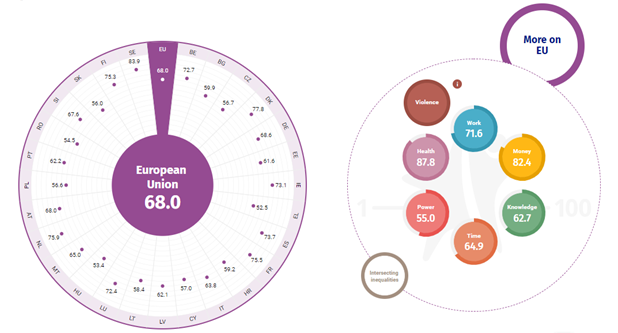EIGE’s aim is to underline current challenges and areas that need improvements, to keep on pushing for progress, and eventually reach total equality.
This year, the Index thematic focus is health: how does gender affect the health of women and men and access to health services?
For 2021, the average EU gender equality score is 68/100, registering a mere 0.6% increase from last year’s results and a total of 4.9 points since 2010. At the current pace, EIGE’s Index shows it will take nearly three generations to achieve gender equality. And COVID-19 could slow down progress even further.
Data show big differences amongst EU countries: Sweden is top of the class with a score of 83.9/100, while Greece is the taillight with 52.5/100.
Taking a closer look at the domain of knowledge, which measures gender inequalities in educational attainment, participation in education and training over the life course, and gender segregation, the EU average score is 62.7/100, seeing almost no progress since 2020.
Overall, educational attainment continues to steadily increase among both young women and men, with women now outpacing men. However, gender segregation in education remains a major block to gender equality in the EU. Moreover, school closures due to COVID-19 reinforce and add new inequalities in education and unpaid work.

To learn more, check out the full EIGE Gender Equality Index 2021.


